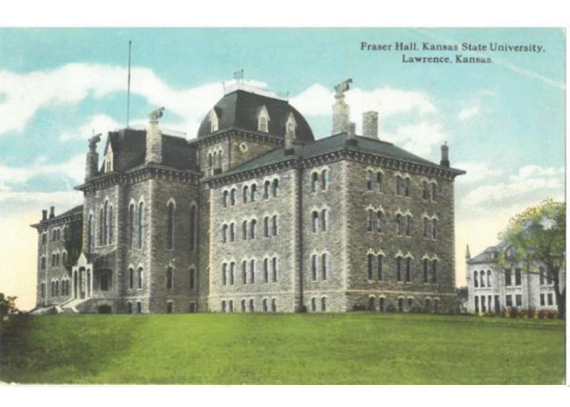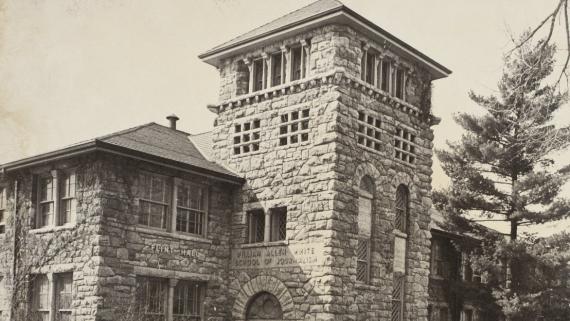
50th Anniversary Luncheon at KU
A reunion of the wonderful and dedicated people who helped KSPA arrive at its 50th anniversary. Join us to celebrate our history and our future!
- What: A celebration of the people who brought KSPA to its 50th year
- When: Saturday, May 4, 2024 from 11:30 a.m. to 1:30 p.m.
- Where: The Kansas Union at the University of Kansas (Jayhawk Room)
- Parking in the Mississippi Street Garage attached to the Kansas Union.
- Who: Current and former KSPA advisers, KSPA Hall of Fame members, supporters of student journalism and their guests
- This event is not intended for KSPA students unless they are the guests of KSPA honorees
- Cost: $20 per person
Special Honors: During the luncheon we will honor . . .
- the 2024 recipient of the Sunflower Award for new teachers
- two 2024 Friend of KSPA award winners
- our 2024 Administrator of the year
- Plus, two new inductees to the KSPA Hall of Fame
Don't miss out!
- Saturday, May 4: KSPA Luncheon at KU in May
Countdown to the luncheon
Kansas student press history before KSPA's founding
There were many organizations and events that preceded the Kansas Scholastic Press Association as supports for student journalists in Kansas:
First Contest

“Kansas State Agricultural College” (now Kansas State University) hosted the “FIRST ANNUAL KANSAS HIGH SCHOOL NEWSPAPER CONTEST”
Conferences at KU

University of Kansas journalism school held annual student journalism conferences as statewide gatherings
Decades of contests

University of Kansas sponsors a high school newspaper contest. The only years that were missed were due to World War II
The first teachers' group

Kansas Council of Teachers of Journalism is formed
Another student press group
The Kansas Interscholastic Press Association (KIPA) operated as an organization
Another group for teachers
A fledgling and eventually failed group, the Kansas Council of Publication Advisers, begins
KOPA begins
More than 50 advisers enrolled as charter members in the Kansas Organization of Publications Advisors (KOPA). Membership dues were $1.
KOPA moves to KU

KOPA informs KSU “Department of Technical Journalism” that they intend to relocate to the University of Kansas
First Courier newsletter
The first issue of the Courier, the newsletter of KOPA, is published in May
Standing together
KOPA and KSPA (Kansas Scholastic Press Association) exist as parallel organizations.
KSPA History
Since its founding in 1974, KSPA has been a constant support for student journalists in Kansas.
First KSPA contest
While still a part of KOPA, KSPA hosts its first contest in April
KSPA's founding
KSPA constitution is “Approved at the annual meeting of KOPA/KSPA in Lawrence, Kansas, Saturday, March 30, 1974”
First Student Journalist of the Yer
John Milburn of Pittsburg High School earns the first award for Kansas Student Journalist of the Year
Honoring supportive administrators
Gary Graber of Nickerson High School is named the first Administrator of the Year
Protection for student free expression
The Kansas Student Publications Act is signed into law by Governor Joan Finney, providing protections for student journalists and their teachers
The first Hall of Fame inductees
The first inductees to the KSPA Hall of Fame are announced: 17 teachers and university faculty
Honoring Jackie Engel
Jackie Engel, the “mother of KSPA,” passes away at the age of 81 after a career at McPherson High School. The highest teaching award for Kansas journalism advisers is named after her.
A Fake Principal Goes Viral
The “Pittsburg 6,” six students from Pittsburg High School, force the resignation of their newly hired principal by exposing her fake credentials, making international news
25th anniversary of student press law
To mark the anniversary of the Kansas Student Publications Act, hundreds of students gather in Topeka for an overnight conference at a hotel.
Honoring student courage
KSPA awards its first Courage in Journalism Awards to two students from different schools: Shawnee Mission North and Blue Valley Northwest
Through the pandemic
KSPA contests and awards continue through pandemic lockdowns that closed schools, allowing students to continue competing
